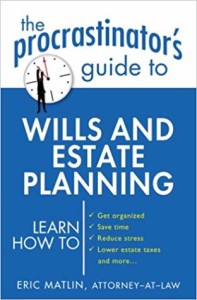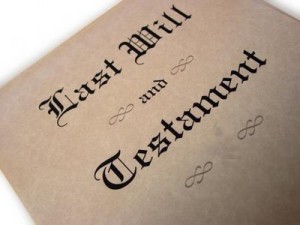When it comes to Estate Planning, have you ever thought any of these?
It’s time that we set up a Will…
When dad died, he had a Living Trust – maybe I need a Trust as well?
I think it is time to get my affairs in order…
What do I have to do so my loved ones don’t end up in Probate Court?
If you’ve had any of these thoughts, then the next question becomes very important…
What have you done about it?
If the answer is nothing, we can help.
Procrastinating Estate Planning is common. In fact, one attorney even wrote a book called “The Procrastinator’s Guide to Estate Planning.” If you’ve decided that you have procrastinated estate planning long enough and are ready to get moving forward, we’re here to help.
The Law Office of Mark McMullin is focused on “Estate Planning”. Typically, people think of Wills, Trust, and Beneficiary Designations when they think of Estate Planning. We do them all. If now is the right time for to take action, to get your affairs in order, we’d like to help.
We’ve helped a lot of other people just like you and would consider it an honor to work with you. You know this is important stuff. You also may not know just where to start or what questions to ask. We will help you with all of that.
What our Estate Planning clients say
Take a look at our Testimonials page and see what our other clients are saying. Notice the towns where these testimonials come from – our clients are your neighbors in Cape Girardeau, Jackson, Marble Hill, Scott City, Perryville, New Madrid, and Poplar Bluff. It’s not uncommon for clients to drive over an hour to meet with us at our office in Cape Girardeau because they want to make sure they are dealing with someone who knows what they are doing.
If you’re ready to get started, just give our office a call (573-334-5125). We would be happy to help you.




